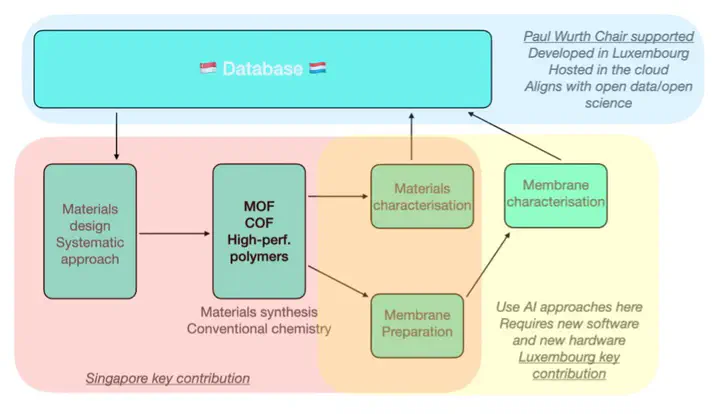Hydrogen selective membranes using machine learning to accelerate materials development

In this project we develop new membranes for H$_2$ separation from H$_2$/natural gas (NG) blends at low energy cost, in particular allowing for the production of industrial grade hydrogen with a minimum number of separation stages and recycles, that could be deployed for distributed extraction of hydrogen from NG networks for industrial end users. This particular separation (H$_2$ from a mixture of CH$_4$/N$_2$/CO$_2$, potentially with trace contaminants including sulfur compounds) is seldom studied and this proposal comes at an opportune time, with both new advances in materials (especially MOF and COF materials), new materials discovery techniques (especially facilitated by big data and AI/ML approaches, as well as the enormous demand for hydrogen to reduce reliance on imported fossil fuels. This will be coupled with the development of a world-first, smart automated membrane testing system being built up with support from the Paul Wurth Chair at Uni of Luxembourg.
This project is a collaboration with the group of Professor Dan Zhao, National University of Singapore.
This project is suported by the Luxembourg National Research Fund (Fonds National de la Recherche Luxembourg), AFR Bilateral Project Number 17112420.
